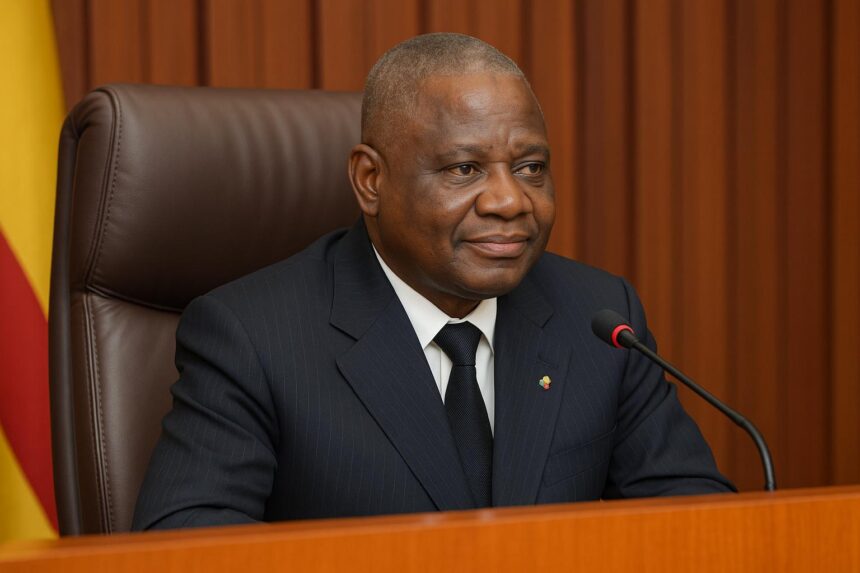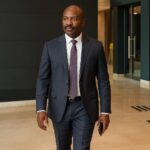Call for Stability Ahead of 2026 Ballot
Closing the sixth ordinary administrative session of the Senate on 13 August, Speaker Pierre Ngolo delivered a message that resonated beyond the chamber’s marble walls. He urged political actors, institutions and citizens to safeguard Congo-Brazzaville’s hard-won stability as the 2026 presidential election gradually approaches.
He reminded senators that public order and the dignity of debate are cultural assets, not merely legal requirements. Protecting democracy, he argued, means accepting the electorate as the ultimate arbiter. The remark echoed his call for a serene commemoration of the Republic’s 65th Independence Day later this month.
Political Landscape after Constitutional Reform
Congo has remained relatively tranquil since the constitutional referendum of 2015 adjusted presidential term limits, a fact often cited by regional observers at the Institute for Security Studies. Analysts note that social cohesion is reinforced by regular consultations between the executive, parliament and the influential customary authorities.
Yet the electoral calendar imposes its own rhythm. The National Independent Electoral Commission is expected to publish a provisional timetable early next year, according to Radio Congo. Parties are therefore beginning quiet groundwork, mindful that early consensus on rules can mitigate the flashpoints experienced in several neighbouring states.
Parliamentary Diplomacy as Soft Power
Speaker Ngolo placed special emphasis on what he called the ‘soft power of chambers’. Congo’s delegation joined July’s Bastille Day parade in Paris and took an active role at the fiftieth Parliamentary Assembly of La Francophonie, events that showcased Brazzaville’s commitment to multilateral dialogue.
French Senator Joël Guerriau praised the Congolese contribution, arguing on RFI that strong parliamentary links are crucial at a time of global realignments. Within Central Africa, Congo has also revitalised exchanges with Cameroon and the Democratic Republic of Congo, particularly on cross-border security and health surveillance.
Legislative Session Highlights
The now-adjourned session examined twenty-four texts, including fourteen international ratifications and six draft laws. According to the official journal, the Senate adopted contracts governing new offshore production-sharing blocks, provisions that energy consultancy Wood Mackenzie says could boost national output if market conditions cooperate.
Legislators also approved the establishment of specialised agencies targeting environmental protection and the formalisation of the informal economy. These structures echo the priorities outlined by President Denis Sassou Nguesso in his National Development Plan 2022-2026, which lists ecological transition and job creation as twin pillars of medium-term growth.
Health coverage featured prominently. Two new general hospitals at Ouesso and Sibiti were endorsed, complementing ongoing World Bank-supported upgrades to referral centres in Brazzaville and Pointe-Noire. The Ministry of Health believes the facilities will reduce medical evacuations and align with regional commitments under the Universal Health Agenda.
Budget Orientation and Fiscal Strategy
The orientation debate for the 2026 budget invited frank exchanges. Senators recommended curbing what they termed excessively generous tax exemptions. A December 2023 IMF report estimated foregone revenue from such incentives at 2.3 percent of GDP, suggesting ample fiscal space could be reclaimed through stricter screening.
Finance Minister Ingrid Olga Ghislaine Ebouka-Babackas assured the chamber that a review mechanism will accompany the upcoming finance bill. She added that enhanced digitalisation of customs and treasury operations, supported by the African Development Bank, has already lifted non-oil receipts by nearly ten percent this year.
Navigating Global Uncertainty
Ngolo’s speech situated Congo’s challenges within a turbulent global context of geopolitical frictions, climate shocks and commodity volatility. Oxford Economics expects sub-Saharan growth to decelerate slightly in 2024, making diversification efforts critical. The Senate leader insisted that coherent institutions are the best insurance against external uncertainty.
That narrative found echoes in recent remarks by United Nations Resident Coordinator Chris Mburu, who commended Brazzaville’s proactive approach to the Sustainable Development Goals after presenting the 2023 UN Cooperation Framework update. He highlighted the alignment between legislative initiatives and targets on renewable energy and maternal health.
Roadmap to 2026 Presidential Election
With roughly thirty months before ballots are cast, the political tempo is expected to quicken after the Christmas recess. Observers from the Carter Center predict that early voter roll audits and transparent results management will be decisive variables, an assessment privately shared by several African Union diplomats.
For now, the Senate’s closing gavel symbolises a consensus that dialogue remains the preferred instrument of governance. The choreography of legislative scrutiny, diplomatic outreach and fiscal vigilance is likely to continue, offering stakeholders a procedural roadmap as the nation advances toward another chapter in its republican journey.
As Ngolo left the podium, he paraphrased a proverb popular along the Congo River: a calm current still reaches the ocean. The aphorism, delivered with measured cadence, captured his chief message for 2026: electoral competition can proceed without turbulence if the institutions rowing the canoe remain synchronised.
Preparations also include a nationwide biometric identification programme overseen by the Ministry of Territorial Administration with technical support from Germany’s GIZ. The pilot stage, launched in July, wp-signup.phped forty thousand citizens. Officials say a comprehensive database will streamline voter verification and improve delivery of public services.






















